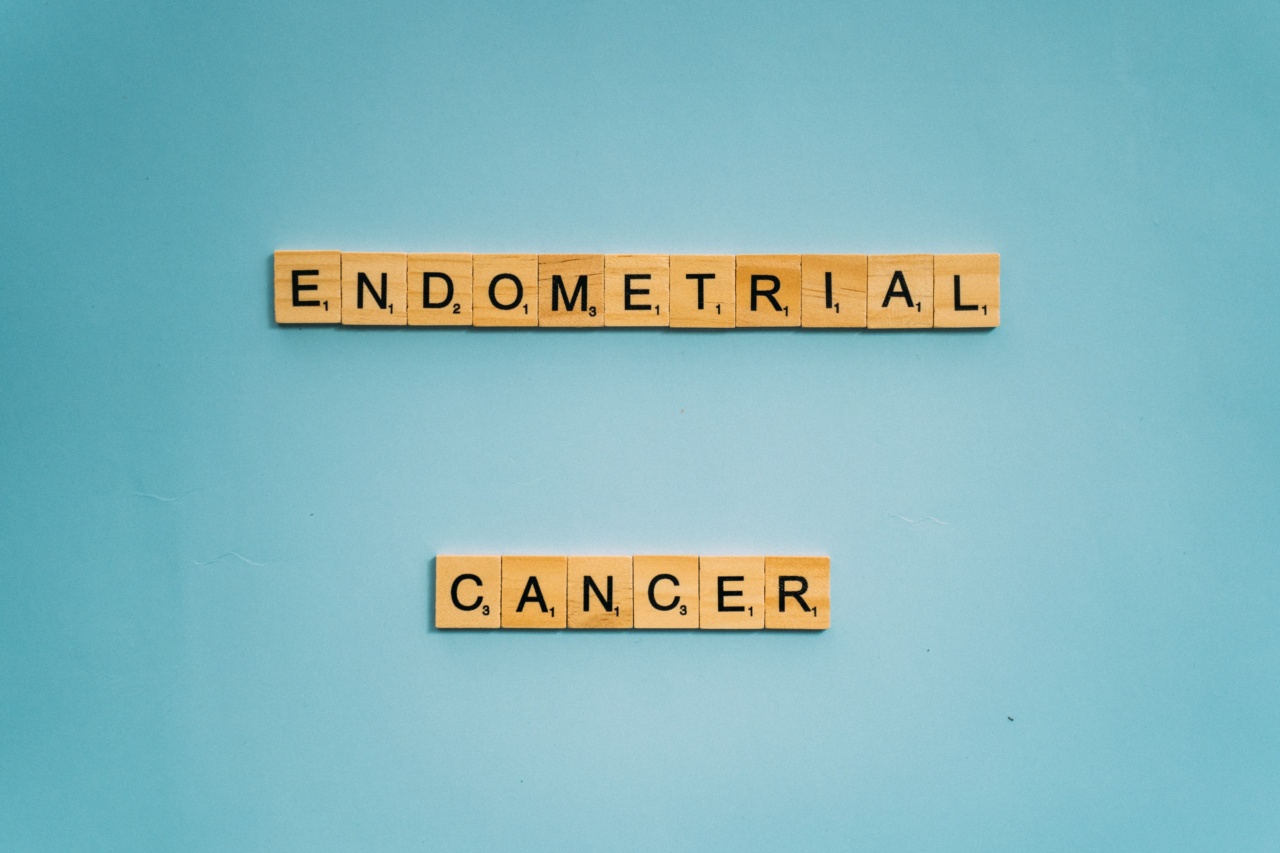Endometrial cancer is a type of cancer that starts in the lining of the uterus, which is known as the endometrium. This cancer affects women and is one of the most common types of cancer that affects the female reproductive system.
There are certain factors that can increase the risk of endometrial cancer by threefold. In this article, we will discuss these factors in detail.
1. Age
The risk of endometrial cancer increases with age. Women who are over the age of 50 are at a higher risk of developing this type of cancer.
This is because the chances of abnormal cell growth in the endometrial tissues also increase as a woman gets older.
2. Obesity
Obesity is a major risk factor for endometrial cancer. Women who are obese are more likely to develop this cancer than women who maintain a healthy weight.
This is because obesity is associated with higher levels of estrogen, which can cause abnormal cell growth in the endometrial tissues.
3. Hormonal Imbalance
Hormonal imbalances can also increase the risk of endometrial cancer. Women who have high levels of estrogen and low levels of progesterone are more likely to develop this cancer.
This is because estrogen stimulates the growth of the endometrial tissues, while progesterone helps to control this growth. Thus, low levels of progesterone can result in abnormal cell growth in the endometrial tissues.
4. Diabetes
Diabetes is another factor that can increase the risk of endometrial cancer. Women with diabetes are more likely to develop this cancer than women without diabetes.
This is because high levels of insulin in the blood can increase the levels of estrogen, which can cause abnormal cell growth in the endometrial tissues.
5. Personal or Family History of Endometrial Cancer
Women who have a personal or family history of endometrial cancer are at a higher risk of developing this cancer. This is because certain genetic factors can contribute to the development of endometrial cancer.
6. Tamoxifen Use
Tamoxifen is a medication that is used to treat breast cancer. However, it can also increase the risk of endometrial cancer. Women who have been treated with tamoxifen for breast cancer are at a higher risk of developing endometrial cancer.
7. Unopposed Estrogen Therapy
Unopposed estrogen therapy is a type of hormone replacement therapy that is used to relieve the symptoms of menopause. However, this therapy can increase the risk of endometrial cancer.
This is because it involves the use of estrogen without progesterone, which can cause abnormal cell growth in the endometrial tissues.
8. Smoking
Smoking is a factor that can increase the risk of many types of cancer, including endometrial cancer. Women who smoke are more likely to develop this cancer than women who do not smoke.
9. Lack of Physical Activity
Lack of physical activity can also increase the risk of endometrial cancer. Women who do not engage in regular physical activity are more likely to develop this cancer than women who are physically active.
Exercise can help to maintain a healthy weight and reduce the levels of estrogen in the body, which can help to prevent the development of endometrial cancer.
10. Diet
Diet can also play a role in the development of endometrial cancer. Women who have a diet that is high in fat and low in fruits and vegetables are more likely to develop this cancer than women who have a healthy diet.
This is because high-fat diets can increase the levels of estrogen in the body, while fruits and vegetables contain nutrients that can help to prevent the development of cancer.






























